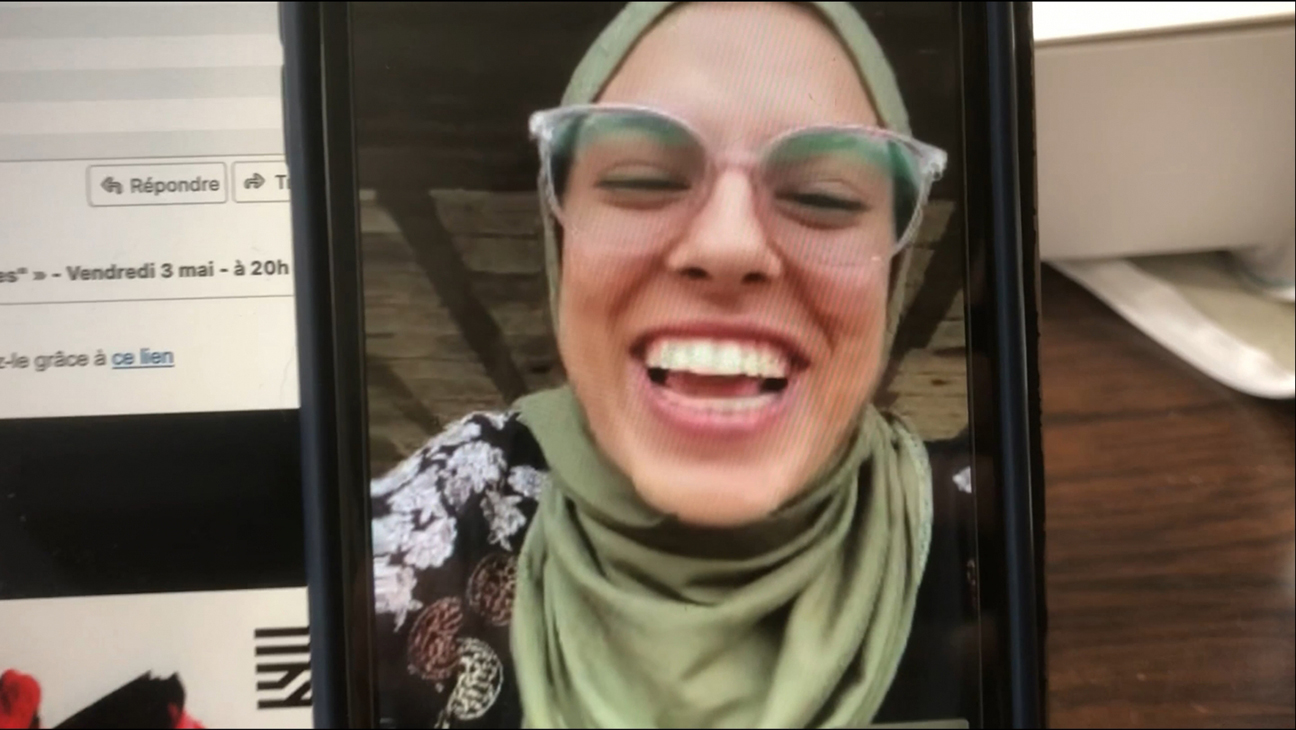It’s not often that a movie review suddenly transorms into an obituary, but that’s unfortunately the case for Iranian director Sepideh Farsi’s new documentary, Put Your Soul on Your Hand and Walk. Only two days after the film was announced in the lineup of Cannes‘ ACID sidebar, another announcement was made informing us that its protagonist, 25-year-old Palestinian photojournalist Fatma Hassona, was killed by the Israeli Defense Forces along with several members of her family.
Perhaps even more tragic is the fact that the endearing and joyful Hassona, whom we get to know through months of video calls assembled by Farsi into a feature-length conversation, clearly saw her death as a possibility. In one of several frank discussions over FaceTime (or an equivalent app), she tells the director: “You have many different options to die here in Gaza,” detailing the bombings, shootings, disease and starvation that have decimated her population for over a year and half now. Shortly after, she explains how her adorable 8-year-old niece keeps telling her, “I want to die,” as if this were a happy ending to strive for.
Put Your Soul on Your Hand and Walk
The Bottom Line
Chronicle of a death foretold.
Venue: Cannes Film Festival (Acid)
Cast: Fatma Hassona, Sepideh Farsi
Director: Sepideh Farsi
1 hour 50 minutes
Death looms over Farsi’s movie both as it unfurls and after it finishes, although Hassona was — how awful to use the past tense here — anything but a pessimist. “I’m trying to find some life in this dead,” she says in her impressive if imperfect English, which she often delivers with a broad smile and a laugh.
That last line is also how she characterizes her work as an amateur photojournalist, documenting the mass destruction surrounding her on all sides. Between the numerous video calls, Farsi inserts dozens of Hassona’s pictures, which indeed are filled with signs of life — children playing in the street, men selling food, women carrying water or provisions — amid all the chaos and ruins.
What’s most striking about Put Your Soul on Your Hand and Walk, whose title is how Hassona describes venturing outdoors when she can be killed at any moment, is the way it forces the viewer to experience the blunt repetition of death and devastation faced by its central figure.
Farsi, who originally tried to enter Rafah but was turned away, began interviewing the young woman starting in April 2024, holding a series of extended video conversations that lasted until October — roughly a year after the Hamas-led massacre of Israelis that kicked off the current war. From one talk to another, many of them interrupted by faulty internet connections, some of them by bombings, we see Hossana and her family living a daily, monthly, and eventually yearly existence in which they try to survive as the city around them falls apart.
The photographer so matter-of-factly talks about her extreme situation — “that’s the normal,” she says with a smile — that we almost get used to it. At one point, Farsi hears a noise outside the window of one of the apartments Hassona takes shelter in, asking where it’s coming from. “Apache helicopters,” the girl replies. “What do they use them for?” the director continues. Hassona looks at her like she’s talking to a child who can’t understand something as simple as this: “To kill us,” she says, again with a smile.
Farsi’s movie may be straightforward in form, perhaps too repetitive at times, but that also seems to be the point. There’s no need to add anything to discussions as heartbreakingly honest as these. At most, the director inserts brief segments from news broadcasts, again captured with her phone, giving the viewer some context of events — a bigger picture to accompany this intimate portrait of a gifted young woman living through hell, yet still able to look at the bright side of things.
That doesn’t mean, however, that Hassona always remains positive, and there are moments when she loses hope, especially after friends or family members are killed. And while she never delves into the long history of the Israeli-Palestinian conflict, she does at one point mention her dissatisfaction with Hamas leader Yahya Al-Sinwar, who would soon be killed as well.
Put Your Soul on Your Hand and Walk is ultimately less a documentary exposé than a piece of raw unfiltered evidence, bearing witness to a tragedy that continues to unfold as this review is being written. The film, and Hassona’s eye-opening photographs, will one day be added to the historical record detailing what happened in Gaza — which, in a broader sense, is also about what has happened to our civilization.
“If the war ends in Palestine, it will end everywhere else,” Hassona says to Farsi, in a statement that sounds halfway hopeful, yet also fatalistic about the current state of the region. Later, in one of her last recorded conversations with the director, and months before she herself would be killed, Hassona rather optimistically looks forward to the day “when I can tell my children what I have lived, and what I have survived.”











